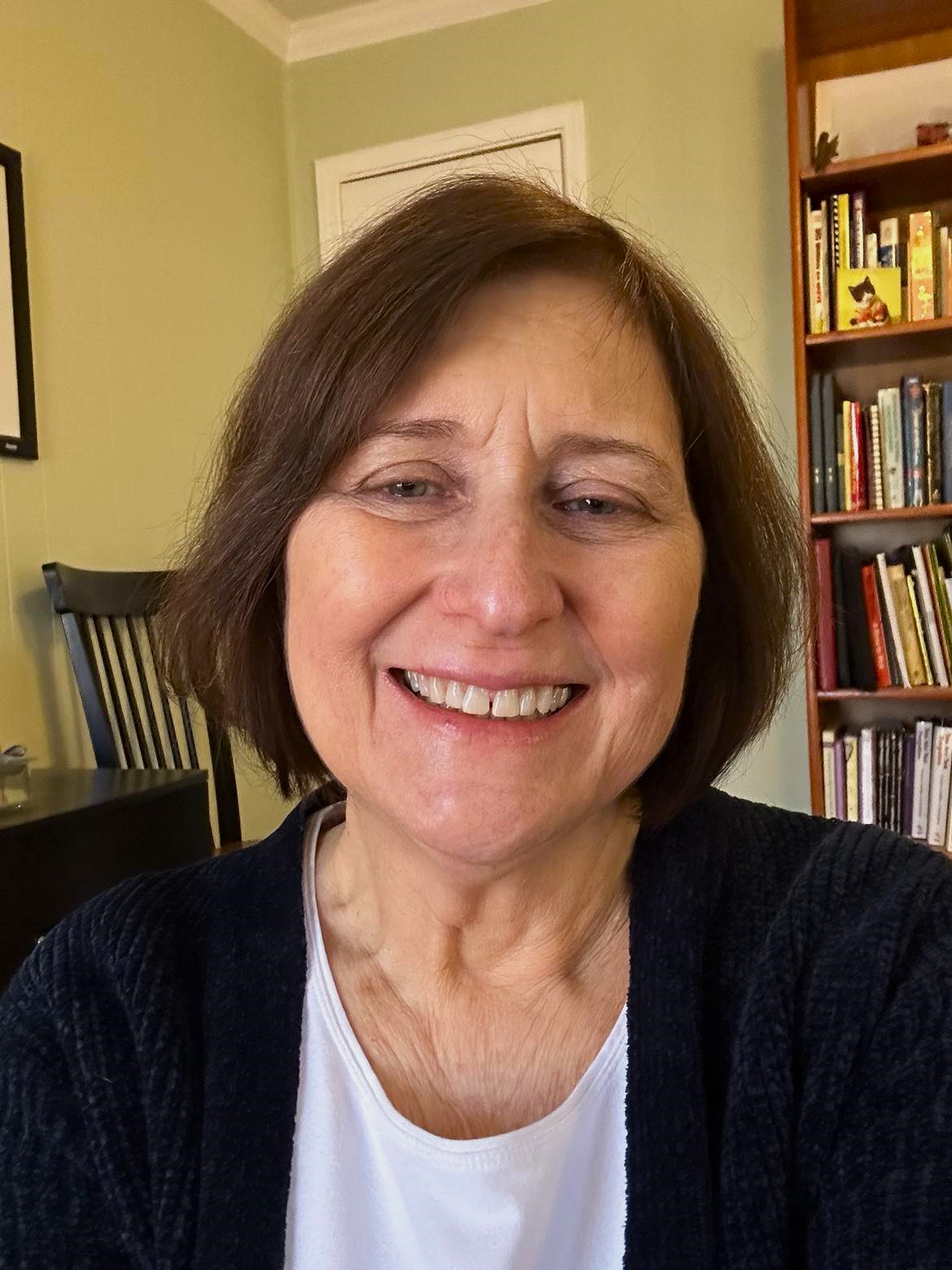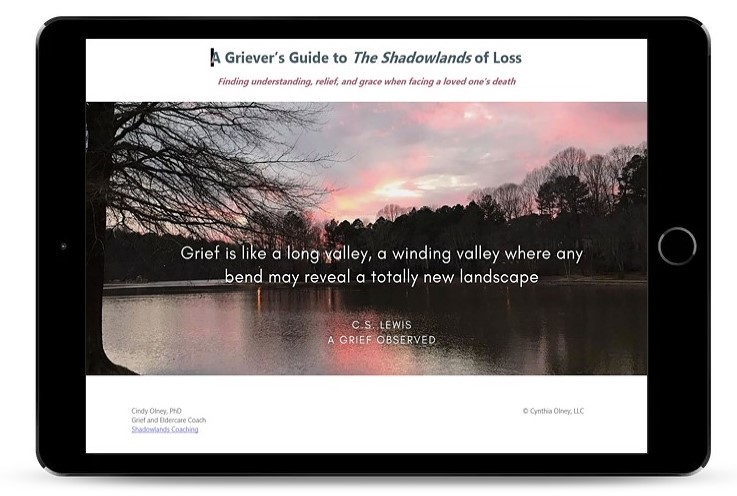Because my father got aging and needed care, I’m a better problem-solver and patient advocate.
Because my father was isolated in an assistant living apartment during COVID, I raised my technology skills to a whole new level so I could help him stay connected and do his online financial chores.
Because my father had cancer, I learned that a cure may be worse than a disease, and, sometimes, you don’t know until it's too late.
Because my father’s care forced me to face no-win decisions, I learned to be kinder to myself, particularly during bouts of hindsight.
Because I learned to be kinder to myself, I became more patient and forgiving of others.
Because my father died, I now know that my own life comes with an expiration date, so I better make the most of every minute.
These are the lessons of my father’s dying.
Do they make me grateful for my loss?
Hell no.
But I appreciate who I’ve become in my journey through grief.
The Unwinnable Battle
Let’s be clear: there’s no silver linings to death and loss.
It may be true that whatever doesn’t kill us makes us stronger. But we don’t have to like it.
You feel like you're in a struggle you can't win. But you can’t walk away from it, either.
In Die Wise, death educator Stephen Jenkinson draws a powerful distinction between fighting and wrestling. Fighting is about defeating an opponent. Wrestling is about engagement.
Jenkinson illustrates this through the Old Testament story of Jacob and the stranger (Genesis 32:22-32).
Suffering, learning how to suffer, is how you make meaning from what seems random, chaotic, or pointless. This is what I mean by wrestling. Meaning comes from this kind of wrestling. ~ Stephen Jenkinson, Die Wise.
Jacob is on a fraught journey. He is traveling to re-unite with his brother, Esau, who once threatened to kill him.
One night Jacob camps out by a river. A stranger appears and the two of them become locked in physical struggle that lasts through the night. At dawn, the stranger tells Jacob to let go.
“Not until you bless me,” Jacob replies.
Who is this stranger? Many traditions say it was a divine being or an angel. Others say it represented Jacob’s inner conflict and anxieties. Jacob said he came face-to-face with God.
Whatever the case, Jacob knew he couldn’t win. Yet he stays in the fight. He emerges with a wounded hip. But the stranger also gives him blessings to carry him into his uncertain future.
Grief is our stranger. It pulls us into a bruising, relentless battle that we know we can’t win.
Yet, most of us choose to stay in the struggle. And, in doing so, we learn that grief changes us in ways that nothing else can.
Wrestling With Big Questions
Significant loss upends all of our assumptions about life. It forces us to wrestle with questions we never wanted to face.
Death forces us to confront the meaning of our own lives. We grapple with questions, such as:
- Why did my loved one die and why am I still here?
- Who am I without my loved one?
- How can I possibly keep living without their knowledge and support?
- What matters to me now?
- Who matters to me now?
- Who still needs me?
- What do I really believe about God and how do I live with those beliefs?
These questions are not some intellectual exercise. They are deeply felt and painfully real. Engaging with them brings a mix of physical exhaustion, emotional pain, and mental anguish.
But it’s how you get what you need to keep living without your loved one. Working through these questions helps you discover:
- The depth of your strength and wisdom
- Your ability to adapt to the devastating loss
- Awareness of what you can and want to contribute to your world
- Your sense of responsibility to those you love
- The finiteness, fragility, and beauty of life, and a commitment to making every minute count.
These aren’t silver linings. They are not gifts.
These are the hard-won truths that we wrestle from the rubble of our shattered hearts.
Carrying On
In Understanding Your Grief, grief educator and therapist Alan Wolfelt offers a profound question:
If your loved one could see how you’re living your life, what would they think?
We are our loved ones’ living legacy. Their influence continues through us. And when dawn breaks on your grief, you may choose to keep their spirit alive.
How will you honor their life? How will you carry on their work? How will you make them proud?
You have to live not only for yourself but also, I believe, for the precious person in your life who has died. ~ Alan Wolfelt, Understanding Your Grief
I think of those who lost their children to cancer and dedicate their lives to supporting cancer research. Or others who lose loved ones to violence and devote themselves to advocacy.
These people are forever wounded by their loss. Yet, their grief compels them to keep trying to make the world a better place.
In the name of their loved ones.
Wounded Transformation
For years, I believed I could think my way out of grief.
I believed, if I could ask the right questions and find the right thoughts, I could bypass the suffering and still get the lessons I needed.
You may have heard this well-known Buddhist teaching: Pain is inevitable, suffering is optional.
Having wrestled with grief, I no longer buy it.
Loss is inevitable and so is suffering. The healing is in the struggle.
My father’s illness and death made me wrestle with questions I couldn’t answer. Decisions I didn’t want to make. His dying was a fight I’d never win.
But it was a fight that forced me to grow.
I emerged much wiser and stronger. More resilient. I have a sharper sense of what matters to me.
I also gained deeper compassion for those in the same battle. It’s a quality that allows me to be more aware and present to their suffering.
I now recognize my father in myself. I have inherited his sharp problem-solving skills. His perseverance. His kindness and sense of humor. I try to live in a way that would make him proud.
Most of all, I’ve come to appreciate that life is precious and short. I have a new sense of urgency to make every day count.
Grief changes all of us completely. We emerge from grieving a new person, although still bearing scars that attest to our loss.
It’s a wounding struggle, but it gives us pride in what we’ve been through and what we’ve become.
And an appreciation of the hard-won blessings.
Our ability to keep living. Our ability to carry our loved ones in our memory.
And our ability to allow their memory to shape how we show up in the world.
Questions? Let's Chat!

Yes, there is something you can do about your grief!
Hi, I'm Cindy. I'm a life coach who specializes in helping bereaved clients actively work through their grief. My coaching uses scientifically supported methods shown to help people adapt to life after loss.
You can learn more about my program by visiting my Work With Me page. Or check out this short video.
I offer free discovery calls for anyone who wants to meet me and ask questions about my program. These are free informational calls, and there's no obligation to work with me. You can call if you’re interested in working with me or referring me to someone you know.
Working with a grief coach can be game-changing. You can actively engage in your grief and start feeling progress quickly. You can start seeing the possibility of a fulfilling, enjoyable life after loss.
Get A Griever's Guide to the Shadowlands of Grief
Have you recently lost someone dear to you? Or are you worried about someone who has? Download your free copy of A Griever's Guide to The Shadowlands of Loss. It covers some key elements to grieving and a few helpful strategies that can ease your experience of grief.
